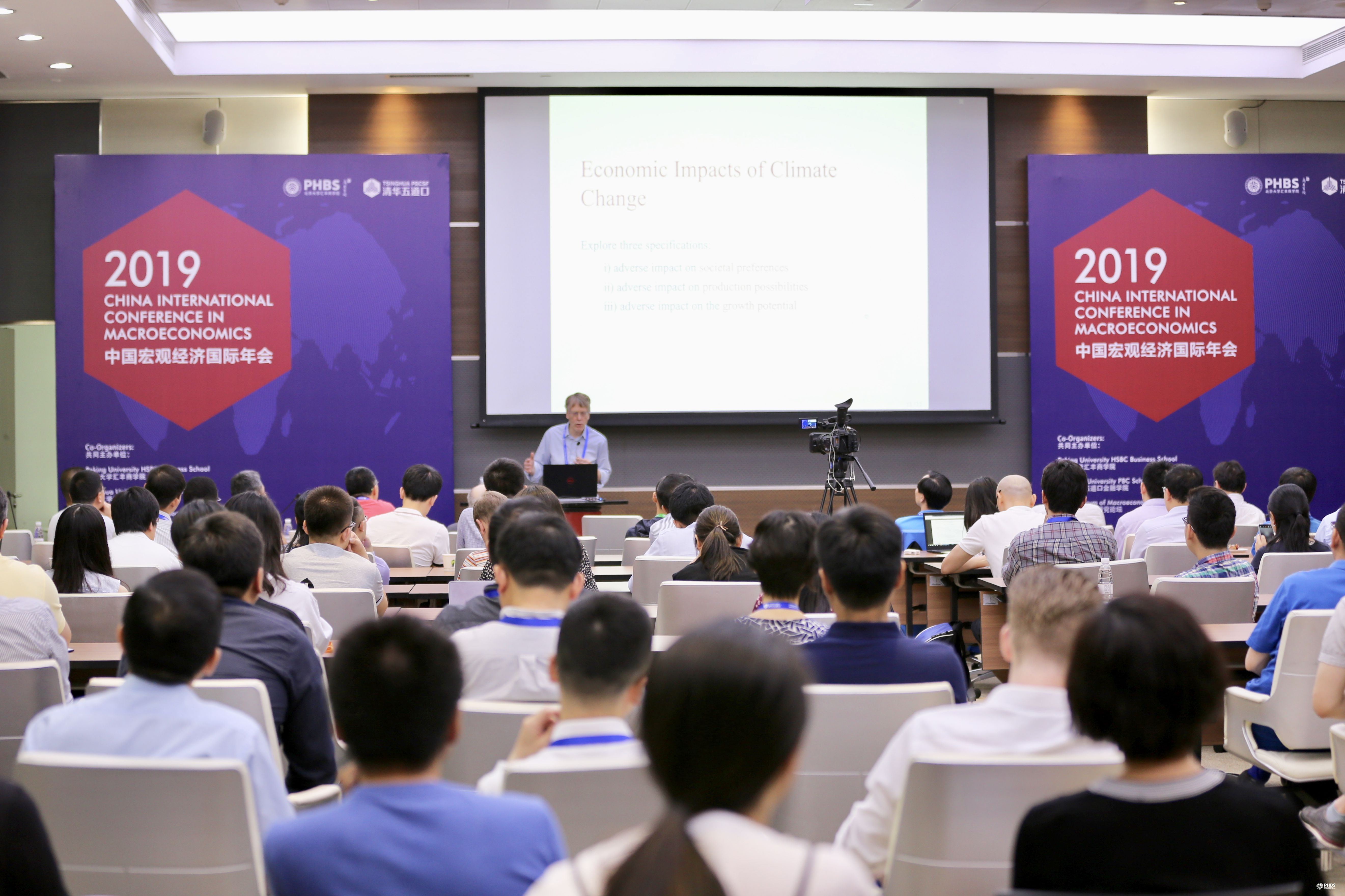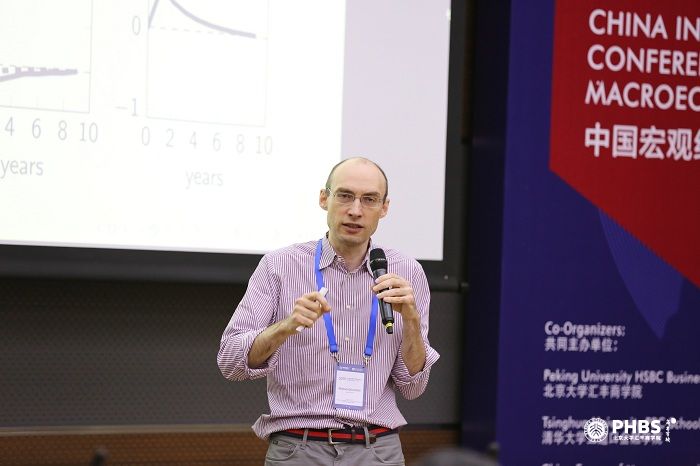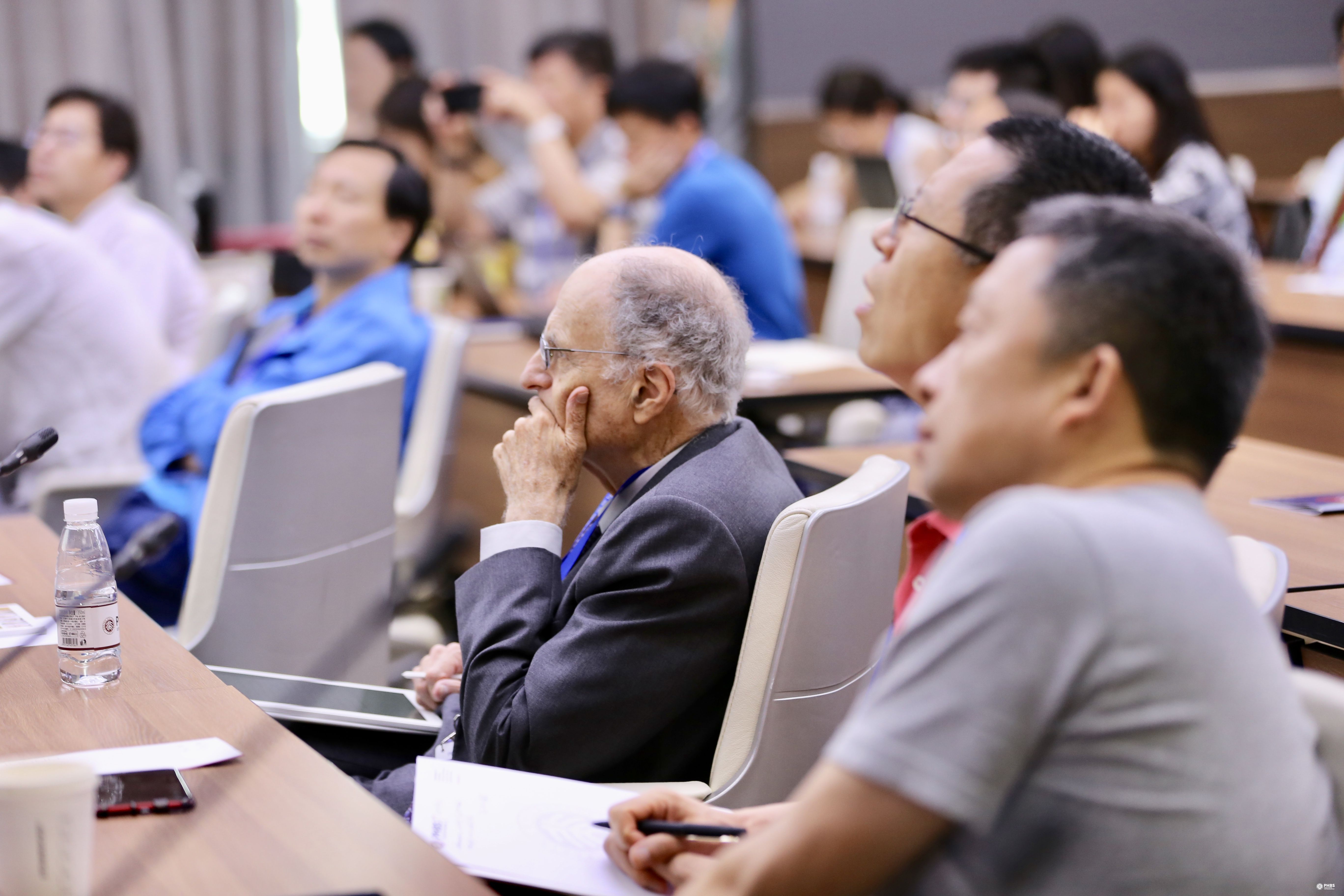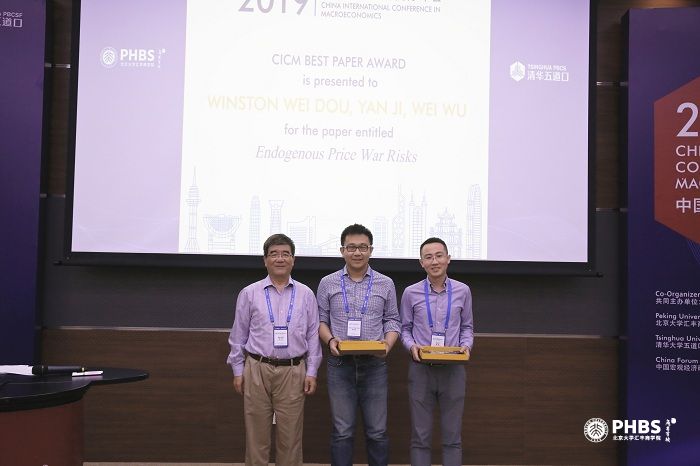The Second China International Conference in Macroeconomics (CICM) was held at Peking University HSBC Business School, Shenzhen, June 21-23 and jointly sponsored and organized by Peking University HSBC Business School (PHBS), Tsinghua University PBC School of Finance (PBCSF), and China Forum of Macroeconomic Research (CFMR).
The annual event this year featured three keynote speeches, parallel academic sessions and a policy panel. Over 150 scholars, policymakers and practitioners worldwide converged to present papers and discuss topics related to macroeconomics, including Nobel laureates Thomas Sargent (2011) and Lars Peter Hansen (2013). This year’s acceptance rate from open submissions was 10.4%, out of 319 high-quality papers.
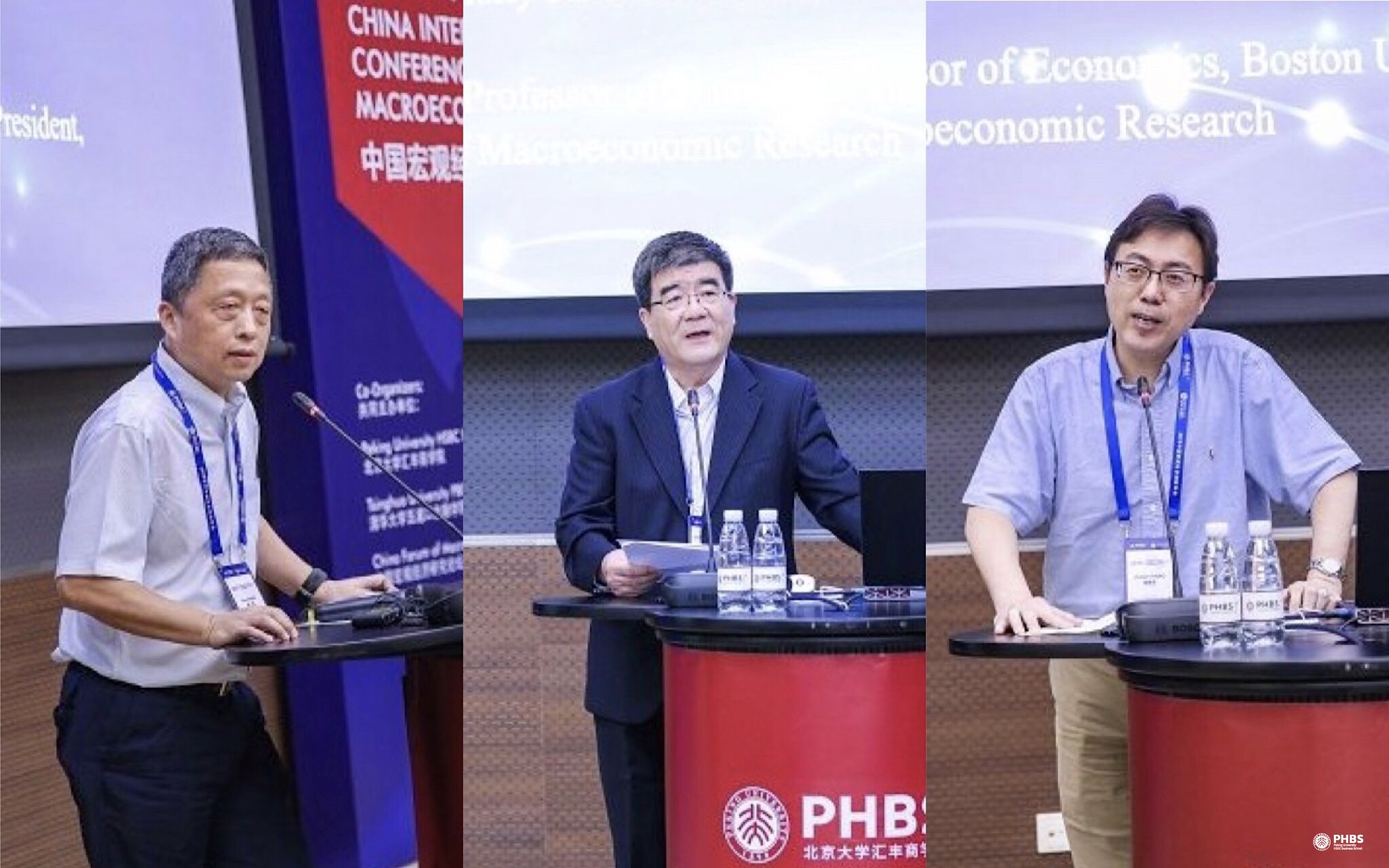 From left to right, Hao Zhou, Wen Hai and Jianjun Miao
From left to right, Hao Zhou, Wen Hai and Jianjun Miao
Wen Hai, dean of PHBS; Hao Zhou, associate dean of Tsinghua University PBC School of Finance; and Jianjun Miao, president of China Forum of Macroeconomic Research, delivered opening remarks. They emphasized the importance of macroeconomic research and the aim of CICM in promoting international dialogue and exchange.
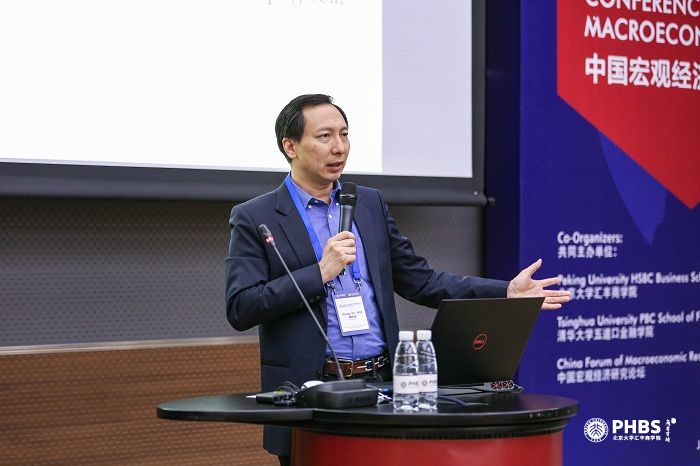
Shang-jin Wei, N.T. Wang Professor of Chinese Business and Economy, Columbia University
Professor Shang-jin Wei probed monetary policy based on global value chains and proposed a structural explanation for divergence between PPI (Producer Price Index) and CPI (Consumer Price Index ) measures. PPI reflects upstream sector inflation while CPI focuses more on final goods inflation. He pointed out that if only aggregate price indices can be chosen in the monetary policy making process, then targeting PPI instead of only targeting CPI improves welfare.
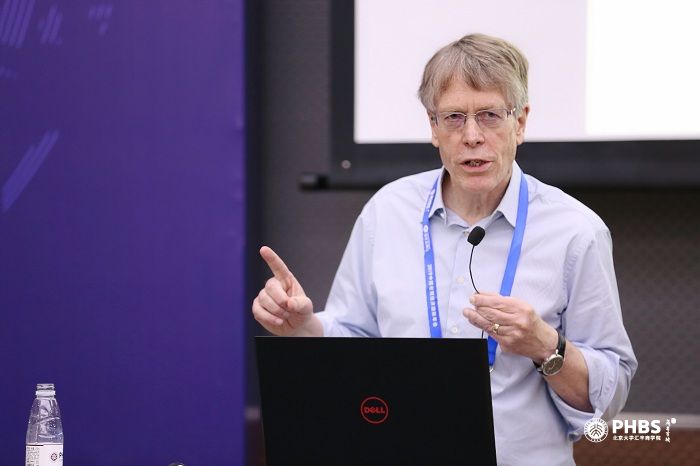
Lars Peter Hansen, 2013 Nobel Laureate in Economics
In his keynote speech, Professor Lars Peter Hansen provided insights on the relationship between carbon emissions, climate change, and price uncertainty. He used social valuation rather than private valuation and took climate change and the subsequent societal damage induced by economic activity as the “cash flow” to be valued. The results of the model show that when the global temperature rise exceeds the carbon budget (i.e., exceeds expectations), adverse effects of global warming on economic growth rate and the uncertainty of its impact will also increase rapidly.
Mikhail Golosov, Homer J. Livingston Professor of Economics, University of Chicago
Professor Mikhail Golosov provided a keynote address on “Inequality, Business Cycles and Monetary-Fiscal Policy.” His study examined optimal monetary and fiscal policy in a model with heterogeneous agents, incomplete markets, and nominal rigidities. In this context, agents differ in wages, exposures to aggregate shocks, holdings of financial assets, and abilities to trade assets, while incomplete financial markets prevent agents from fully insuring risks. He pointed out that the presence of trading frictions increases the importance of fiscal instruments.
Sargent and scholars listen to the keynote speeches
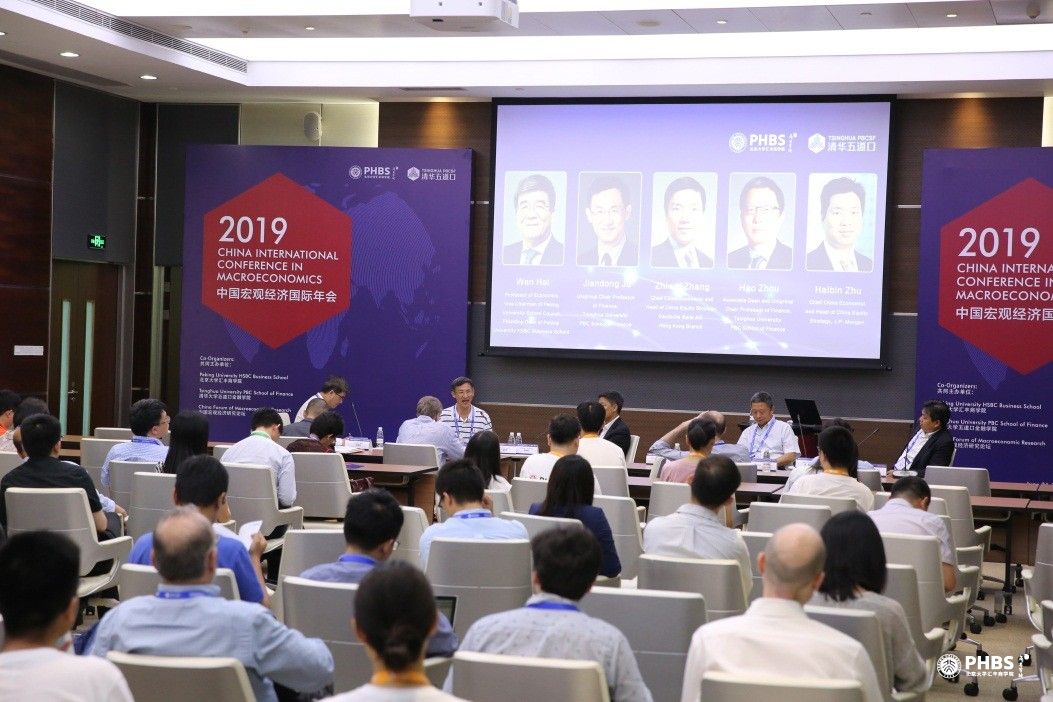
Policy panel
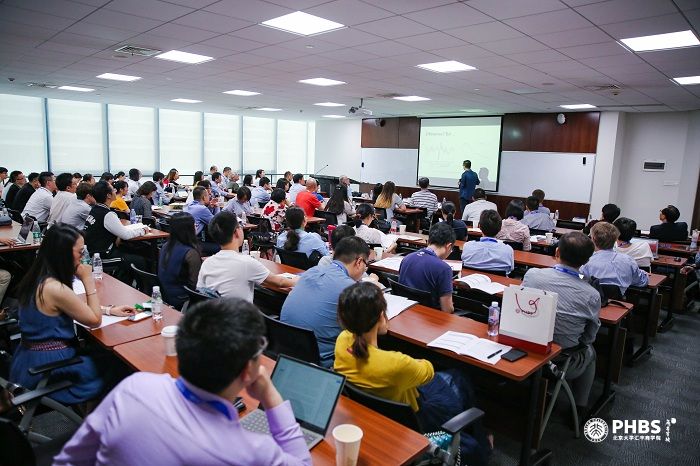
Parallel academic sessions
In the policy panel, scholars, policy experts and practitioners (from China International Capital Corporation, Deutsche Bank AG Hong Kong Branch and J.P. Morgan), presented views on local and global economic issues. In addition, parallel academic sessions covered the main fields of China’s economic development, asset pricing, bank credit, monetary policy, and the labor market, among other topics.
Best Paper Award
The paper “Endogenous Price War Risks” earned the CICM Best Paper Award, coauthored by Winston Dou, the Wharton School, University of Pennsylvania; Yan Ji, Hong Kong University of Science & Technology (HKUST); Wei Wu, Texas A&M University. It proved that in industries with higher capacity for radical innovation, firms' incentive for price undercutting are more immune to price war risks and long-run growth shocks. PHBS Dean Wen Hai presented the award.
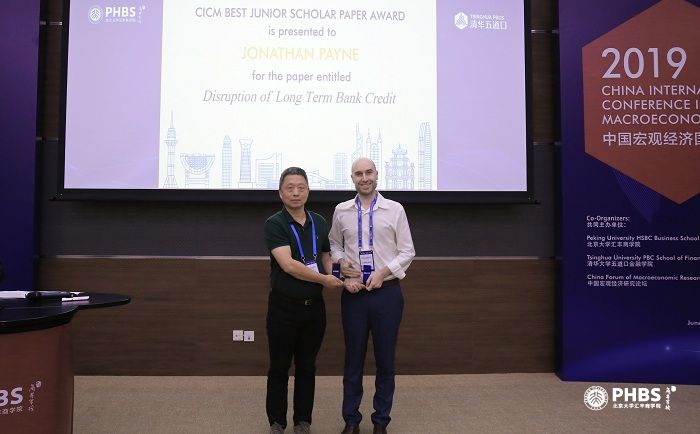
Best Junior Scholar Paper Award
This year’s CICM Best Junior Scholar Paper Award was granted to “Disruption of Long Term Bank Credit” by Jonathan Payne, Princeton University. The paper studied the disruption of bank business credit during a financial crisis in a model with optimal long term contracting under agency frictions and a directed search market for bank funding. Hao Zhou, Associate Dean of Tsinghua University PBC School of Finance presents the award.
Following the conference, participants were invited to visit Huawei's headquarters to meet with Senior Vice President Ruiqi Lin.
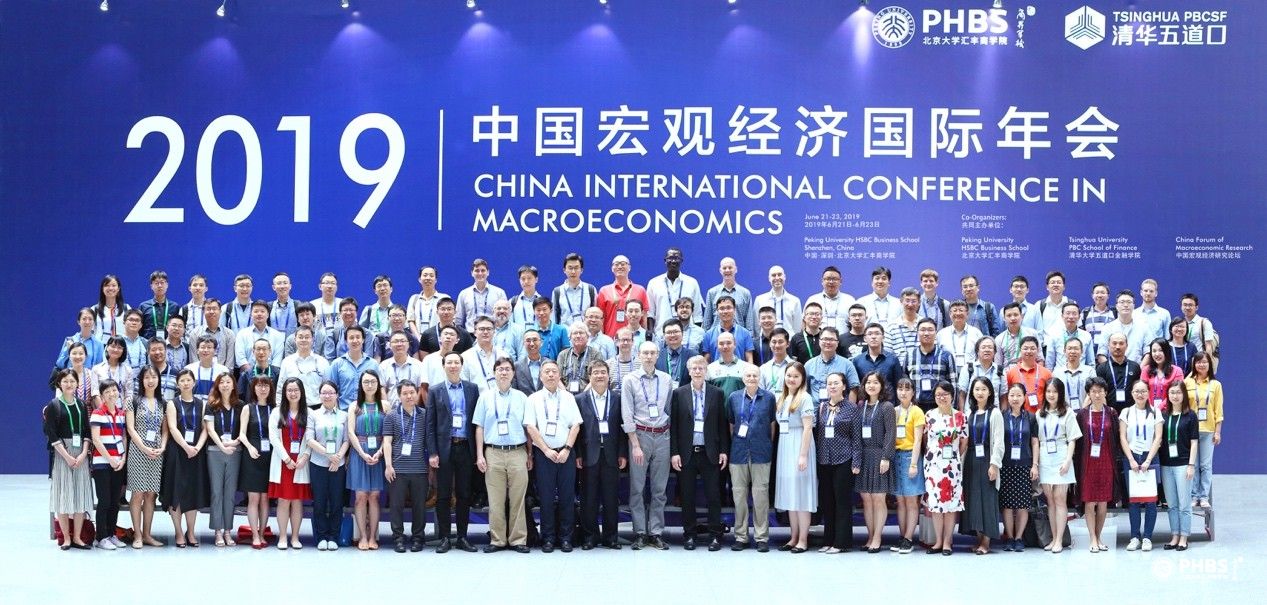
The group photo of participants
By Annie Jin
Edited by Priscilla Young





